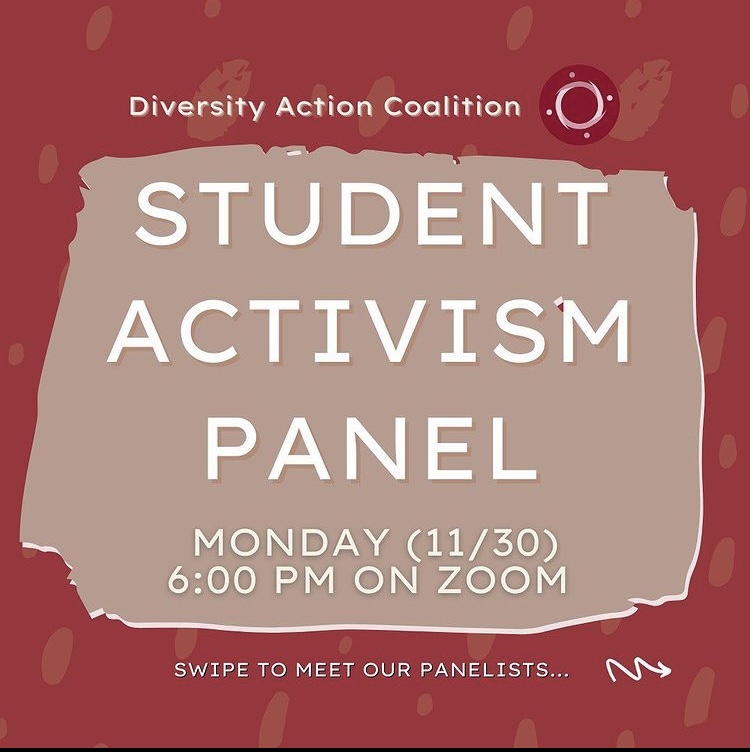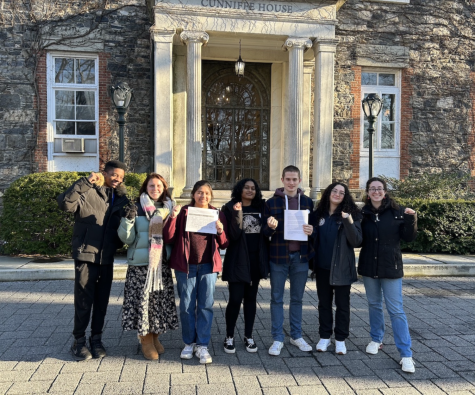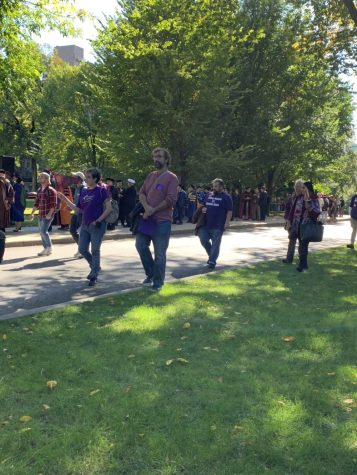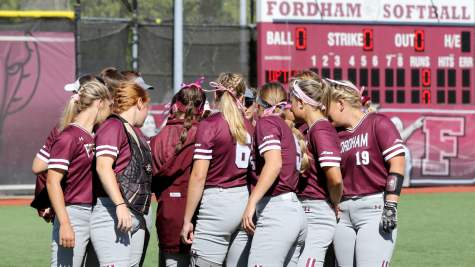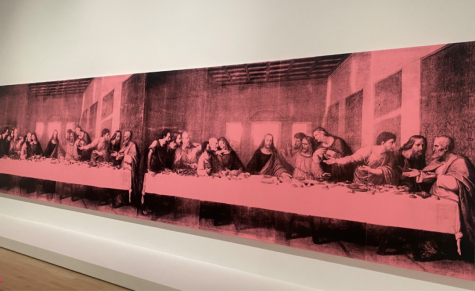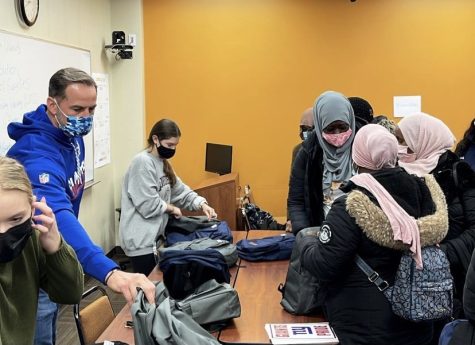Diversity Action Coalition Hosts Virtual Student Activism Panel
The Diversity Action Coalition (DAC) hosted a virtual student activism panel on Monday, Nov. 30, featuring students from several campus organizations actively pursuing diversity, equity and inclusion initiatives.
The event was organized by DAC Chair Arianna Chen, FCRH ’22, and DAC Co-Chair Camila Gomez, FCRH ’22. This was the first student activism panel that DAC has held.
“I think the event went really well, I was happy about the quality of the questions that were being asked,” Chen said. “I was happy about the interactions and the conversations that were being opened.”
The panelists were executive board members and leaders of clubs such as ASILI, Rose Hill’s Black Student Alliance, Social Innovation Collaboratory, the Center for Community Engaged Learning (CCEL), Global Outreach (GO!), Students for Environmental Awareness and Justice (SEAJ), Fordham Athletics and the Fordham PRIDE Alliance.
“Part of the things that DAC aims to do is make sure that everyone gets a seat at the table, especially at a primarily white institution where we’re not always represented,” Gomez said. “It’s hard to be a minority person or person in a marginalized community at Fordham.”
The panel was open to all members of the Fordham community, and students were in attendance as well as several faculty members. In total, there were about 40 attendees.
Gabrielle Perez, FCRH ’21, panelist and president of SEAJ, said she was glad to see faculty at the event.
“That feels really nice that faculty are coming in and listening to what we have to say because a lot of times it feels like faculty versus students when it comes to activism,” Perez said.
The panelists were answering questions regarding current initiatives for their clubs, what a more inclusive and diverse Fordham might look like, mobilizing other groups on campus and navigating a new virtual space given the circumstances of this semester.
Alexandra Shaw, FCRH ’21, panelist and secretary for ASILI, spoke on current initiatives within the Black Student Alliance, including their published list of demands and push to change the administration’s policy regarding students protesting on campus.
“I think that a way that we can progress is not having policies within the institution that directly impact students of color and other marginalized students because like they can’t be visible through activism and whatnot on campus,” Shaw said.
There were several goals of the activism panel, Chen said. Over the summer, Fordham saw a wave of activism within its community, and DAC wants to continue the conversation surrounding student activism.
“It was important for us to uplift the voices of students who are doing this work,” Chen said. “So we wanted to continue the conversation and open dialogues with administrators about our progress and how we can continue to work together on all these issues and how we can foster, you know, more productive and intentional relationships with them.”
Another aim of the event was to reach out to students about getting involved in these groups. Jade Dyer-Kennedy, FCRH ’22, panelist and Fordham Connect board member, said a lot of activism groups have the opportunity to intersect.
“I think by choice so there are all the opportunities to get involved in the world at Fordham in activism or in other ways, and it’s your choice whether you’re going to dedicate your time to do it,” Dyer-Kennedy said.
Michelle Cisneros, FCRH ’21, panelist and GO! executive board member, said it was interesting to hear from other groups, and he is looking to further collaborate with the organizations present at the event.
“I think something for the future is just further collaboration, and I know that that is always kind of talked about and I feel like almost rarely goes into action, but there’s so many different intersections between all of us,” Cisneros said.
Chen said DAC is happy to work with all these groups in intersectional ways.
“We’re all trying to achieve a lot of the same goals at the end of the day just within our own respective groups and in our own ways,” Chen said. “And so we’re happy to facilitate these conversations, and we’re looking to do that.”



































































































































































































